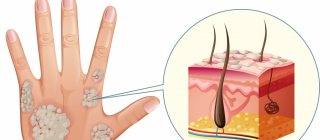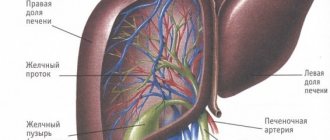Can a binge alcoholic stop drinking forever on his own or does he need to apply coding and seek the help of specialists? This question worries many; the patient’s loved ones want to help him recover, to understand that this is bad and will only lead to a painful death. There are many cases when such people quit drinking forever, lived a full life, without regretting anything. To understand which methods to choose the best for a particular case, it is necessary to identify the reasons that force him to submit to this “potion” and take it in unlimited doses.
Male alcoholism - what is it?
Male alcoholism is a severe, difficult-to-treat disease that gradually destroys all areas of a person’s life: physical and mental health, family, work, social and financial status, moral values.
The difficulty in diagnosis and treatment lies in the fact that the addict is rarely aware of the fact of his own addiction, therefore in the practice of narcologists there are rarely cases when a man seeks help himself. Relatives of an alcoholic: wives, children, parents ask for treatment. It also happens that the main psychological burden falls on the shoulders of loved ones, because along with a sincere desire to help a husband, son or father recover, one must continue one’s own life.
Click here to view the conditions, tariffs and prices for treatment
Types of male alcoholism
Alcoholism is classified according to several indicators. The basis can be based on gender (male and female), age (children and adults), type of alcohol, nature of alcohol consumption, stage of addiction, etc.
Based on the frequency and nature of alcohol consumption, narcologists define 5 types of addiction: chronic, binge drinking, secret, beer alcoholism, and domestic drunkenness. Let's look at each of them in a little more detail.
Chronic alcoholism
Characterized by regular consumption of alcohol in large quantities. For a chronic alcoholic, the strength and type of alcohol are not important. 3 stages of chronic alcoholism gradually develop:
- Psychological dependence without physical need: a person likes to experience a state of intoxication, the amount of alcohol gradually increases.
- Physical dependence begins after ethanol begins to participate in metabolic processes and the body simply cannot function without a dose of alcohol.
- The third stage is the development of severe withdrawal symptoms, intoxication after a small dose of alcohol, damage to internal organs, and personality degradation.
Binge drinking
A binge alcoholic may not drink for a long time, but at any moment he can break down and start drinking a lot and uncontrollably: from several days to several weeks. Depending on the type and degree of binge drinking, an alcoholic can get out of this state on his own, however, if the binge lasts more than five days and is accompanied by physical and mental changes, one cannot do without the help of narcologists.
Secret (hidden) alcoholism
To a greater extent, public figures and people with high social status suffer from this type of alcoholism. It is dangerous because the disease progresses in any case, and at some point it is no longer possible to hide the addiction, since the disease is reflected in appearance and behavior.
Domestic drunkenness
Its main symptom is that the amount of drinking remains more or less constant. A person can cope with this type of alcoholism on his own, since he may feel guilty about his incontinence.
Beer alcoholism
It occupies a special place in the dependency hierarchy. The leading sign is the appearance of a female-type beer belly. Beer alcoholics often drink a portion of beer in the morning to “energize”, and end the day by taking an increased dose of beer - up to 3 or more liters. Beer alcoholics have reduced or no potency.
Course of the disease
There are 3 stages of alcoholism, and at each stage the pathological attraction increases.
I - light. It is characterized by dulling and then disappearance of the gag reflex as the dose increases. Loss of control over drinking due to loss of feeling of satiety. Since it is no longer possible to stop, they drink to the point of “switching off.” Amnesia for events that occurred during intoxication. Tolerance increases by 50% of the initial value. The duration of the stage is from 3 to 6 years. If a person at this stage asks the question of how to overcome alcohol addiction and begins treatment, a positive result will be quite easy to achieve.
II - average . It is characterized by the formation of withdrawal syndrome with increasing tolerance. In intoxication, anger and aggressiveness appear. Memory losses. The functioning of various organs and systems is disrupted. Seizures and alcoholic psychoses may develop. Duration from 3–5 to 10 years.
III - heavy . There is a decrease in tolerance due to liver destruction. All it takes for a patient to drink 100 grams is to fall into a severe coma. Systematic binges occur. Personality disintegrates. The final result is disability and death from complications. Forms in 10–15 years.
Signs of the transition from stage I to stage II are short pseudo-binges of 2–3 days, episodic hangovers. During the transition from stage II to stage III, against the background of constant drunkenness, periods of its intensification are observed, and the hangover becomes more severe. Psycho-like disorders appear.
Symptoms and signs of alcoholism in men
Alcohol addiction changes a person beyond recognition. Surely, both next to you and on the Internet, you could see how a person’s appearance changes after the disease has taken hold of a man. External changes are reinforced by changes in behavior and character.
External signs
It is impossible to make a mistake if a man exhibits the following signs:
- Swelling, especially in the cheeks and eyelids.
- Enlarged, purple nose with pronounced vascular network.
- Tremor of the limbs.
- Dull, brittle hair, baldness.
- If beer alcoholism: weight gain, gynecomastia, characteristic beer belly.
- A reddish tint to the skin as a result of stress vasodilation.
- Sloppiness, unpleasant odor emanating from the body.
If you find these signs in your husband, you should remember that early treatment can completely rid him of addiction quite quickly. The main thing is to go to the clinic on time.
Changes in behavior
There are no exceptions here - any addicted man experiences changes in behavior. This could be aggression, apathy, depression, recklessness, quarrelsomeness, the desire to start a scandal, anxiety. Behavior can vary from unbridled joy to sudden aggression and even physical violence.
An alcoholic has only one value system: another dose of alcohol. Everything else is either indifferent to him or causes irritation.
Signs of chronic alcoholism in men
You can talk about chronic addiction if your husband or loved one exhibits the following signs:
- The man experiences a strong craving for alcohol.
- There is no vomiting reaction.
- The habit of “treating” a hangover with a morning dose of alcohol.
- Uncontrolled drinking of alcohol to the point of unconsciousness.
A chronic alcoholic wants to drink at any opportunity, he does not need a reason. Gradually the man degrades as a person.
Stages of alcohol dependence in men
All men develop addiction differently. It all depends on the initial indicators of personality and physical health. However, it is safe to say that physical dependence can manifest itself in as little as 6-12 months after starting regular alcohol consumption.
First stage
It is characterized by a psychological craving for alcohol: a man drinks every time he experiences stress. At the same time, it finds an explanation for any reason for use: a holiday, a difficult day, etc. Gradually, the man ceases to control the amount of alcohol he drinks.
Second stage
Characterized by the development of binge drinking. During periods of enlightenment in a state of abstinence, a man “cures” a hangover with a glass of alcohol. Cognitive functions are gradually lost and physical cravings develop. The man ceases to be interested in his old life.
Third stage
Drunkenness becomes almost uncontrollable. At this stage, withdrawal becomes painful, and rapid personality degradation occurs. Physical health is seriously impaired, leading to irreversible consequences. The appearance changes: swelling, tremors of the limbs, and hyperemia appear.
What to do if a man regularly drinks alcohol
If addiction is developing, the best solution is to seek help from a drug treatment clinic; only there they will offer optimally comprehensive treatment that combines various techniques.
Rehabilitation
Our clinic offers a rehabilitation course for alcohol addicts, after which your husband will be able to confidently and consciously accept a healthy life without alcohol. Rehabilitation takes place within the walls of the clinic in isolation, where the man will be completely free from the temptations of the outside world.
Experienced psychologists and psychotherapists conduct individual and group sessions with both addicts and their loved ones. Thanks to the work of psychologists, the negativity in a man’s life is redirected into awakening willpower, restoring social connections and moral guidelines.
Our patients leave the clinic as practically healthy people.
Psychological help
The work of a psychologist begins from the very beginning of treatment, as soon as you contact us. Alcoholics rarely admit the fact of their addiction, but thanks to a motivational conversation that a psychologist will conduct using special psychotechniques, your husband will agree to further treatment and rehabilitation.
A psychologist will be able to prove to an alcoholic that he is strong enough to cope with the cravings that are destroying his life. Gradually, the doctor brings the alcoholic out of depression to such an extent that the weak-willed person becomes a confident and strong-willed man.
Drug treatment
Traditional medicine has many ways to combat alcoholism, and drug treatment is effective.
Treatment begins with a detoxification drip to cleanse the body of alcohol. The doctor prescribes comprehensive symptomatic treatment to restore the functioning of internal organs. Additional medications help restore mental health.
Medication and psychotherapeutic coding allows you to establish a barrier between alcohol and the desire to use it.
However, in order to eradicate physical cravings, serious psychotherapeutic work is needed - only in this case can we talk about a complete cure for a man.
12 steps
This is a technique that has proven itself in the best drug treatment clinics in the world. The program allows the addict to realize the fact of the problem, to understand where its source is, in order to subsequently find meaning in existence.
The 12 Steps program is a path to spiritual development, self-improvement, a chance to change and start a healthy life in which there is no place for addiction.
The advantage of the program is that you can go to self-help groups even without being in the clinic, and relatives of addicts can also take advantage of it.
Traditional methods
Trying to cure their husband of alcoholism, some resort to unconventional methods of treatment.
- These are mainly herbs, herbs, bee products or pharmaceutical medicines that are added to alcohol or to the food of an alcoholic in order to develop an aversion to alcohol. This is an ineffective and sometimes dangerous method because valuable time is wasted. Such treatment rarely helps, and only in the early stages of alcoholism.
- Another dead-end method of treating a man for addiction is turning to witch doctors, healers or psychics. Such specialists promise mountains of gold, but in reality, the drinker’s wife simply loses a lot of money and time on this, of course.
- The same can be said about prayers, conspiracies, and magical rituals. No and no again! Don't do this. This is further disappointment and wasted time. If you believe in God, pray for your own peace of mind, but remember that prayer will not cure your husband's alcoholism.
Pitfalls of self-medication
Often loved ones try to provide help for alcohol addiction on their own, but self-medication is a very dangerous and risky undertaking that can lead to a sad ending.
- Abrupt withdrawal from binge drinking leads to withdrawal symptoms. If an addict decides to abruptly quit drinking, or his loved ones limit his access to alcohol, the body will react back due to physical dependence. Seeing how an alcoholic suffers, relatives often follow his lead and buy another bottle so that he can alleviate his condition.
- Another obstacle to effectively combating alcohol on your own is its availability. You can buy alcohol inexpensively at any store near your home. It is essentially a legal drug, but its easy availability creates the illusion of safety.
- Drinking buddies. Dependent friends will not allow a person to leave their company; they turn a person against his family and minimize the problem. Surrounded by people who drink, it is almost impossible to quit. That is why during treatment and rehabilitation the patient of the drug treatment center is completely protected from society.
- Lack of stress resistance. Any problem or trouble in life leads to stress, which a person cannot cope with without a glass. He cannot resist the temptation to drink, because he knows that alcohol will help him get away from his problems.
How can a man quit alcohol on his own?
Quitting drinking on your own is difficult, but possible, unless the addiction has turned into physical craving and we are not talking about stage 2 of alcoholism.
Awareness of the problem
You need powerful motivation to drown out the need for artificial stimulation of the body.
It is important to establish the root causes that force you to reach for the bottle over and over again. The most common:
- Alcohol relieves stress.
- Drinking gives you self-confidence.
- A small amount of alcohol is good for your health.
- Alcohol addiction cannot be cured (the principle is that then there is no need to quit).
Each of these reasons is insignificant and is easily refuted by both simple logic and medical facts. Suffice it to say that if you eliminate alcohol from your life, then no loss will occur. But addiction can take everything away.
Changing an established lifestyle
Although the support of loved ones and friends is important, it is more important to support yourself, to remind yourself that this is a path that you need to go through yourself. Internal confidence in the correctness of the decision will help you move on to practical actions that will help you get rid of your destructive addiction.
What to do with cravings for alcohol?
Our advice is to create such conditions and lifestyle for yourself that thoughts about alcohol are completely replaced by the need for a fulfilling life. And these conditions are not at all difficult.
- Tell your family and friends about your decision. This way you will enlist their support, and no one will come to visit with an unexpected temptation in the form of alcohol.
- Avoid alcohol anywhere. The sight of alcohol can cause additional stress, so it should be completely removed from the home and parties and events where alcohol is served should be avoided. Avoid liquor stores, beer stores, and liquor departments in stores. If a feast cannot be avoided, find a compromise or a plausible excuse not to drink. You will find such strength within yourself.
- Good sleep and nutrition. A sleep-deprived or hungry body is a strong provocateur. If basic physiological needs are met, then the body is relaxed and protected from stress; it does not need additional stimulation.
- Reward yourself. A sober lifestyle should be enjoyable. So choose entertainment, shop, plan a trip.
- Make a plan so you don't leave yourself with free time. The busy pace of life is a barrier to the pointless waste of a period of life with a bottle of alcohol.
- Take up a hobby. Maybe it will be a forgotten activity from childhood or something spied on the Internet. It is important to create factors that replace the desire to drink.
- Physical exercise. Sports and physical labor are not the only loads that are so important for good heart function. Physical activity promotes the production of happiness hormones.
- We understand that quitting alcohol on your own is difficult. There will be moments when you want to give up on everything. Sessions with a psychologist will help you stay on your chosen path and achieve your desired goal - a sober life.
When you realize that everything is working out, your new lifestyle will tell you which healthy habits and activities give you maximum pleasure.
Consequences of alcoholism in men
The consequences of male alcoholism can be so catastrophic that even a fatal outcome may seem like a deliverance.
The consequences for physical and mental health are:
- Cardiovascular pathologies: heart attack, stroke, etc.
- Liver pathologies: cirrhosis, hepatitis, etc.
- Gastrointestinal diseases.
- Mental pathologies.
- Loss of cognitive functions.
At the last stage of alcoholism, a man’s personality completely degrades - he is no longer the same person he was before.
An alcoholic completely loses social connections, he has no moral guidelines, his only goal becomes instinct - to get and drink the next dose of alcohol.
There comes a time when a man loses his social status, he no longer has friends except his drinking buddies. The family is unable to withstand such a test and refuses it.
An alcoholic loses everything: a good job, income, and a loving family are left behind. Alienation and marginal lifestyles become a fact
That is why it is so important to start treatment as early as possible, not to bring the person to the last line.
Clinical manifestations
Chronic alcohol intoxication is accompanied by psychopathological abnormalities, neurological, and somatic manifestations.
Psychopathological deviations - a change in personality occurs, the range of interests is narrowed. There is a frivolous attitude towards drinking and the consequences associated with it.
A person prefers the company in which they drink and strives to join these companies. Makes himself a “victim” of circumstances, makes impossible promises to stop drinking.
Due to the material and moral damage caused to the family, he comes into conflict with his loved ones. The attitude towards work changes (lateness, absenteeism). As the disease progresses, mental coarsening, deceit and boastfulness develop. Memory and attention decrease.
Neurological symptoms include peripheral, autonomic and central disorders: increased sweating;
- cyanosis and coldness of the extremities;
- hand tremors;
- nystagmus;
- weakening of facial expressions;
- tonic spasms of the leg muscles;
- slurred speech;
- polyneuritis;
- epileptiform seizures;
- cerebrovascular accidents.
Somatic manifestations:
- diseases of the cardiovascular system (toxic myocarditis, cardiosclerosis);
- gastritis;
- hepatitis;
- pancreatitis;
- changes in metabolism;
- cirrhosis of the liver;
- atrophy in the gonads;
- infectious pneumonia due to decreased resistance;
- radiculitis.
Outwardly, drunkards have a neglected appearance, a puffy face of a purple-ash color. At the mention of strong drinks, facial expressions revive with licking of lips and swallowing of saliva.
How to convince your alcoholic husband to start treatment
An alcoholic does not need a reason to drink. He will invent it: the political situation, a tyrant boss, two sons, the janitor did not clean the yard well. At the same time, he feeds his wife with constant promises, sometimes very convincing, that he will drink away this stress and never again. There is no need to have any illusions, he won’t stop drinking.
What can be done?
- First of all, don't call him an alcoholic, that's a doctor's prerogative.
- There is no need to force people to stop drinking with scandals - this will lead to the opposite result.
- Do not discuss your husband's alcoholism with family and friends. Addicts are very touchy and are unable to adequately assess the situation. Their revenge will be simple - drink again.
- Do not try to treat your husband with folk remedies yourself. Please note that compulsory treatment is prohibited by law. In addition, there are no guarantees as to the quality and effectiveness of products that supposedly can relieve cravings.
- If your husband or loved one has an addiction, suggest not fighting the drinking, but rather the problem it causes: for example, loss of health, lack of money, alienation of children, deterioration of relationships with colleagues and friends.
- The main task is to convince the husband to start professional treatment. If it doesn’t work, contact the clinic yourself. We have an intervention service - this is a psychological technique, when a doctor, during a motivational conversation, convinces a man to accept treatment.
Only serious comprehensive treatment will save the family from scandals, sleepless nights, fear for their lives and the lives of their children.











